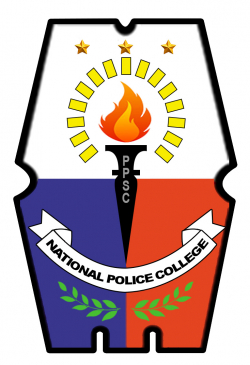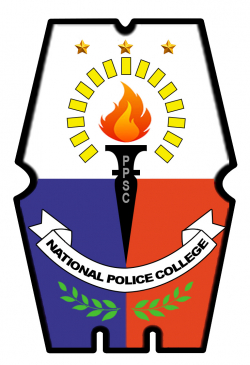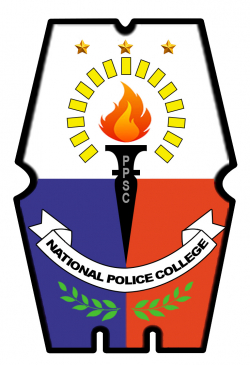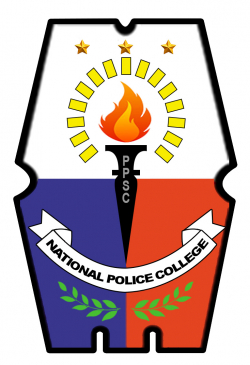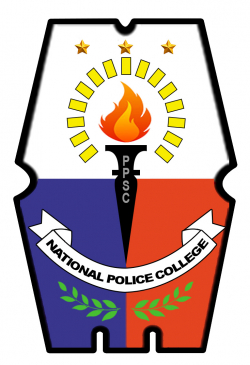PUBLIC SAFETY AND SECURITY STUDIES OF BAGUIO CITY
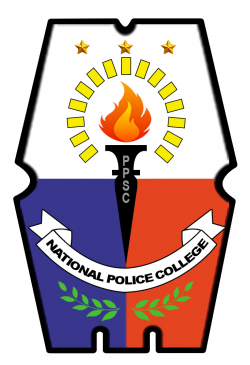
Type
Thesis
Authors
PCPT MICHELLE P DELOS REYES ( PCPT SHARON P DULAGAN PCPT JULIET B KANITENG )
Category
PSOAC
[ Browse Items ]
Publication Year
2024
Abstract
EXECUTIVE SUMMARY
This comprehensive assessment of Baguio City’s public safety and security aimed to identify the critical threats and social problems affecting the city. The study utilized a mixed-methods approach for data collection, incorporating face-to-face surveys, Google Forms, direct observation, and Information Reporting and Analysis System (CIRAS), and interview with key city officials. The objective was to determine the most critical threat and analyze its causes using an analysis matrix across various dimensions.
Critical Threat Identified:
The survey results, which included responses from 334 residents across 78 of Baguio City’s 128 barangays, indicated that traffic congestion is the most critical problem. While traffic congestion is primarily concentrated in the Central business District (CBD), adjacent barangays, and tourist spots, it has a ripple effect on the entire city. Residents in outlying barangays reported being indirectly affected by the shortage of public transport due to PUVs being delayed or struck in CBD traffic.
Analytic Matrix Analysis:
To understand the root causes of traffic congestion, and analytic matrix was employed, examining the issue across multiple dimensions:
Leadership and Governance: There is inconsistent enforcement of traffic laws and a lack of coordinated efforts among various agencies.
Environmental Factors: The city’s road infrastructure and urban planning are inadequate to accommodate the increasing number of vehicles attributed to the city’s mountainous/hilly terrain, limiting expansion and construction of new roads.
Socio-Cultural influences: There is a high dependence on private vehicles due to unreliable public transport systems.
Transportation Systems: Public transport options are insufficient, and traffic management practices are poor.
Legal Frameworks and Law Enforcement: The legal prohibition on confiscating driver’s licenses and license plates undermines traffic law enforcement.
Economic Impact: Economic activities in the CBD significantly increase traffic volumes.
Military and Police Collaborations: Resources and coordination between military, police, and other enforcement agencies are limited.
Political Dynamics: There is a need for supportive legislation and political will to implement comprehensive traffic solutions.
Scientific and Technological Advancements: Although the smart city command center is effective fin monitoring and managing traffic fin the city, still the city lacks long term mitigation, measures such as integrated, widespread, and advanced traffic management system.
Key Findings:
Traffic congestion is primarily concentrated fin the CBD, and the critical issues contributing to congestion include insufficient public transport and inadequate infrastructure. City officials have proposed several solutions to address these issues:
• Alternative Transport System: Proposals include cable cars (currently undergoing feasibility studies), park-and-ride schemes, railways, and Bus Rapid Transit (BRT) systems.
• Infrastructure Development: Thirteen locations have been identified for multi-level parking structures to accommodate targeted 22,000 vehicles. Currently, the parking facilities in the city can only cater 2,700 vehicles while the registered vehicles in the city alone is 64,000.
Focus on Law Enforcement:
As members of the law enforcement community, the study focuses on the enforcement side of traffic management. Currently, Baguio City and adjacent municipalities lack a unified ticketing system. The city issues Traffic Citation Tickets (TCTs) for violations of traffic ordinances but has no existing data base for traffic violators. Moreover, only few numbers of the Baguio City Police personnel assigned in the traffic management is deputized by the Land Transportation Office to issue Temporary Operators Permit (TOP). Additionally, there is no Memorandum of Understanding (MOU) between the local Government of Baguio with the Department of Transportation (DOTr) to impose sanctions on violators who default on penalty payments.
Recently, the enforcement of traffic laws is challenged by the LTO Memorandum dated April 27, 2023 on the prohibition on confiscating driver’s licenses and license plates. As a result, many violations disregard paying their penalties, visitors with violations can just leave the city without paying fines, leading to a lack of deterrence for traffic violations, exacerbating traffic congestion in the city.
Proposed Unified Traffic Ticketing System:
To address these enforcement challenges, the study proposes establishing a unified traffic ticketing system. This system aims to centralize and standardize the issuance, processing, and management of traffic violation tickets, making the enforcement process more efficient and effective. The action plan includes:
• Partnerships with LTO and DOTr: Establish MOUs to ensure violators face penalties and comply with traffic laws.
• Digital Integration: Implement digital technologies for efficient ticket issuance, payment and monitoring.
• Public Awareness Campaign: Educate the public on traffic rules and the benefits of the unified ticketing system.
Alignment with the City’s Vision:
The proposed unified ticketing system aligns with Baguio City’s Smart City Vision 2027, which aims to integrate digital solutions into the city’s infrastructure. As the city prepares or no-contact apprehension through its smart command center, the unified ticketing system is timely and can be seamlessly integrated. This system has been successfully adopted by other cities such as Cebu City, Metro Manila, and Davao City.
Conclusion:
Traffic congestion in Baguio City is a multifaceted issue requiring comprehensive solutions involving improved infrastructure, alternative transportation options, and robust law enforcement mechanisms. By implementing a unified traffic ticketing system and fostering collaborations with key stakeholders, Baguio City can enhance traffic management, reduce congestion, and improve overall public safety and security. Continued commitment to innovate solutions and strategic planning will ensure a safer and more efficient urban environment for all residents and visitors.
This comprehensive assessment of Baguio City’s public safety and security aimed to identify the critical threats and social problems affecting the city. The study utilized a mixed-methods approach for data collection, incorporating face-to-face surveys, Google Forms, direct observation, and Information Reporting and Analysis System (CIRAS), and interview with key city officials. The objective was to determine the most critical threat and analyze its causes using an analysis matrix across various dimensions.
Critical Threat Identified:
The survey results, which included responses from 334 residents across 78 of Baguio City’s 128 barangays, indicated that traffic congestion is the most critical problem. While traffic congestion is primarily concentrated in the Central business District (CBD), adjacent barangays, and tourist spots, it has a ripple effect on the entire city. Residents in outlying barangays reported being indirectly affected by the shortage of public transport due to PUVs being delayed or struck in CBD traffic.
Analytic Matrix Analysis:
To understand the root causes of traffic congestion, and analytic matrix was employed, examining the issue across multiple dimensions:
Leadership and Governance: There is inconsistent enforcement of traffic laws and a lack of coordinated efforts among various agencies.
Environmental Factors: The city’s road infrastructure and urban planning are inadequate to accommodate the increasing number of vehicles attributed to the city’s mountainous/hilly terrain, limiting expansion and construction of new roads.
Socio-Cultural influences: There is a high dependence on private vehicles due to unreliable public transport systems.
Transportation Systems: Public transport options are insufficient, and traffic management practices are poor.
Legal Frameworks and Law Enforcement: The legal prohibition on confiscating driver’s licenses and license plates undermines traffic law enforcement.
Economic Impact: Economic activities in the CBD significantly increase traffic volumes.
Military and Police Collaborations: Resources and coordination between military, police, and other enforcement agencies are limited.
Political Dynamics: There is a need for supportive legislation and political will to implement comprehensive traffic solutions.
Scientific and Technological Advancements: Although the smart city command center is effective fin monitoring and managing traffic fin the city, still the city lacks long term mitigation, measures such as integrated, widespread, and advanced traffic management system.
Key Findings:
Traffic congestion is primarily concentrated fin the CBD, and the critical issues contributing to congestion include insufficient public transport and inadequate infrastructure. City officials have proposed several solutions to address these issues:
• Alternative Transport System: Proposals include cable cars (currently undergoing feasibility studies), park-and-ride schemes, railways, and Bus Rapid Transit (BRT) systems.
• Infrastructure Development: Thirteen locations have been identified for multi-level parking structures to accommodate targeted 22,000 vehicles. Currently, the parking facilities in the city can only cater 2,700 vehicles while the registered vehicles in the city alone is 64,000.
Focus on Law Enforcement:
As members of the law enforcement community, the study focuses on the enforcement side of traffic management. Currently, Baguio City and adjacent municipalities lack a unified ticketing system. The city issues Traffic Citation Tickets (TCTs) for violations of traffic ordinances but has no existing data base for traffic violators. Moreover, only few numbers of the Baguio City Police personnel assigned in the traffic management is deputized by the Land Transportation Office to issue Temporary Operators Permit (TOP). Additionally, there is no Memorandum of Understanding (MOU) between the local Government of Baguio with the Department of Transportation (DOTr) to impose sanctions on violators who default on penalty payments.
Recently, the enforcement of traffic laws is challenged by the LTO Memorandum dated April 27, 2023 on the prohibition on confiscating driver’s licenses and license plates. As a result, many violations disregard paying their penalties, visitors with violations can just leave the city without paying fines, leading to a lack of deterrence for traffic violations, exacerbating traffic congestion in the city.
Proposed Unified Traffic Ticketing System:
To address these enforcement challenges, the study proposes establishing a unified traffic ticketing system. This system aims to centralize and standardize the issuance, processing, and management of traffic violation tickets, making the enforcement process more efficient and effective. The action plan includes:
• Partnerships with LTO and DOTr: Establish MOUs to ensure violators face penalties and comply with traffic laws.
• Digital Integration: Implement digital technologies for efficient ticket issuance, payment and monitoring.
• Public Awareness Campaign: Educate the public on traffic rules and the benefits of the unified ticketing system.
Alignment with the City’s Vision:
The proposed unified ticketing system aligns with Baguio City’s Smart City Vision 2027, which aims to integrate digital solutions into the city’s infrastructure. As the city prepares or no-contact apprehension through its smart command center, the unified ticketing system is timely and can be seamlessly integrated. This system has been successfully adopted by other cities such as Cebu City, Metro Manila, and Davao City.
Conclusion:
Traffic congestion in Baguio City is a multifaceted issue requiring comprehensive solutions involving improved infrastructure, alternative transportation options, and robust law enforcement mechanisms. By implementing a unified traffic ticketing system and fostering collaborations with key stakeholders, Baguio City can enhance traffic management, reduce congestion, and improve overall public safety and security. Continued commitment to innovate solutions and strategic planning will ensure a safer and more efficient urban environment for all residents and visitors.
Number of Copies
1
| Library | Accession No | Call No | Copy No | Edition | Location | Availability |
|---|---|---|---|---|---|---|
| NPC Library | 676769 | 1 | Yes |
